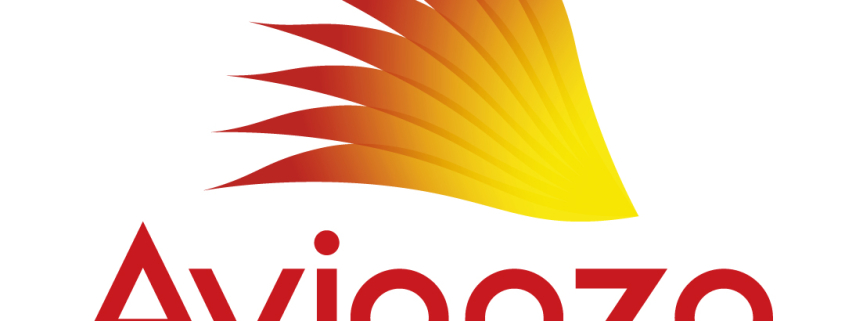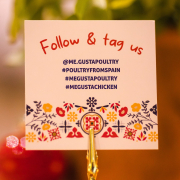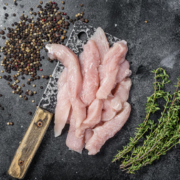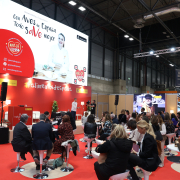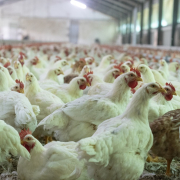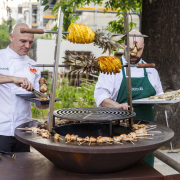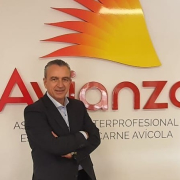EL SECTOR CÁRNICO AVÍCOLA ESPAÑOL RECHAZA EL ACUERDO UE-MERCOSUR POR SUS CONSECUENCIAS PARA LA SEGURIDAD ALIMENTARIA, EL MEDIO AMBIENTE Y LA SOSTENIBILIDAD DEL SECTOR
● Supone una amenaza directa e inmediata a la sostenibilidad del sector avícola, poniendo en riesgo miles de empleos al permitir importaciones que no cumplen con los estrictos estándares de calidad y sostenibilidad europeos.
● Son una competencia desleal y con riesgos ambientales tangibles, pues las diferencias regulatorias y de costes de producción favorecen prácticas insostenibles, comprometiendo la seguridad alimentaria y los objetivos climáticos de la Unión Europea.
Madrid, 9 de diciembre de 2024.- AVIANZA, la Asociación Interprofesional Española de Carne Avícola, se suma al rechazo generalizado del sector cárnico avícola europeo, y de la agricultura y ganadería en general, ante el acuerdo comercial entre la Unión Europea y el Mercosur, debido a las graves implicaciones que este tiene para la seguridad alimentaria, el cumplimiento de estándares de producción, la sostenibilidad ambiental y el futuro del sector agrícola y ganadero europeo.
El acuerdo, que permite una mayor importación de carne avícola y otros productos agrícolas desde los países del Mercosur (Brasil, Argentina, Paraguay y Uruguay), representa un riesgo significativo para los estándares de calidad y sostenibilidad que distinguen a la producción europea. Según los últimos informes de la Dirección General de Salud y Seguridad Alimentaria de la UE (DG SANTE), Brasil enfrenta serias dificultades para garantizar el cumplimiento de las normas sanitarias europeas, lo que plantea inquietudes sobre la seguridad de las importaciones.
Un impacto devastador en la producción local
El acuerdo contempla una cuota adicional de importación de 180.000 toneladas de carne avícola desde el Mercosur (adicionales a las 300.000 ya autorizadas), lo que equivale a la producción combinada de países como Finlandia, Suecia y Dinamarca. Estas importaciones no solo afectan a los productores locales, sino que también generan una competencia desleal al permitir la entrada de productos que no cumplen con las estrictas normativas de bienestar animal, seguridad alimentaria y sostenibilidad ambiental que rigen en la UE.
Actualmente, el 25% de la carne de pechuga de pollo consumida en la UE proviene de terceros países como Brasil, Tailandia y Ucrania, que no operan bajo los mismos estándares. Esta situación se agravará con la entrada en vigor del acuerdo, debilitando la producción local y poniendo en riesgo miles de empleos en el sector avícola español.
Los productores avícolas españoles enfrentan costes de producción significativamente más altos debido al cumplimiento de estrictas normativas de bienestar animal, seguridad alimentaria y sostenibilidad. Se estima que estos estándares pueden suponer entre el 6%-8% del precio de venta de la carne avícola en España (y eso, sin que se hayan aprobado las nuevas normativas de bienestar animal y el origen no deforestado de la soja). En contraste, los productores brasileños operan bajo regulaciones menos exigentes, lo que les permite ofrecer precios más bajos y crea una competencia desleal que amenaza la viabilidad del sector avícola español.
Riesgos para la sostenibilidad ambiental y la biodiversidad
El acuerdo contradice los compromisos asumidos por Europa en materia de acción climática y protección de la biodiversidad. Países del Mercosur, especialmente Brasil, han sido señalados en reiteradas ocasiones por prácticas insostenibles como la deforestación masiva y el uso de sustancias prohibidas en la UE, como la atrazina en cultivos agrícolas, así como el uso de antibióticos u hormonas. Estas diferencias regulatorias no solo comprometen los esfuerzos globales contra el cambio climático, sino que también minan los objetivos de sostenibilidad establecidos en el marco del Pacto Verde Europeo.
Falta de reciprocidad y transparencia para los consumidores
A pesar de las promesas de etiquetado de origen, la normativa actual no obliga a identificar el origen de la carne utilizada en productos procesados, como comidas preparadas o alimentos en cadenas de restauración. Esto deja a los consumidores europeos expuestos a productos que no cumplen con los estándares que esperan, sin posibilidad de tomar decisiones informadas.
AVIANZA insiste en la necesidad de implementar un etiquetado obligatorio para todas las carnes y productos avícolas, así como garantizar la reciprocidad en los estándares de producción entre la UE y los países exportadores.
Una llamada a la acción
Desde AVIANZA, y en línea con la posición de otras asociaciones europeas como AVEC, CEPM y COPA-COGECA, instamos a los responsables políticos de la Unión Europea a rechazar el acuerdo en su forma actual. Permitir la entrada de productos agrícolas que no cumplen con los estándares europeos sería un error estratégico que socavaría la seguridad alimentaria, el bienestar de los consumidores y la sostenibilidad de nuestro sector agrícola.
El futuro de la agricultura y ganadería europeas depende de una política comercial que proteja a nuestros productores, fomente la sostenibilidad y defienda los valores europeos.


